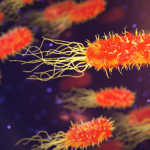The society nowadays has been raising awareness on various topics and issues that for long have been considered a social stigma. The rise in awareness of herpes has almost paralleled the number of times the topic of feminism has been brought up.
With millions of groups going out and spreading their message to the public, herpes awareness among public has risen by almost 20% over the last few years.
So what exactly is herpes?
Herpes is a disease caused by a virus called the herpes simplex virus. It is a sexually transmitted disease that spreads and majorly affects the lymph nodes in the body. There are 2 strains of this virus- HSV 1 and HSV 2. These strains of viruses cause genital herpes and cold sores.
In specific, this disease spreads due to contact of body fluids. It is believed that in general, women are more susceptible to this disease when compared to men. There are however, various methods to prevent the infection.
As per statistics, 1 out of every 6 people from ages 19 to 49 has genital herpes. It is especially important for pregnant mothers with herpes to get themselves treated as it could be dangerous for their baby. The disease spreads through the placenta and results in neonatal herpes that can even be fatal.
Often genital herpes is confused with cold sores. The differences between the two are given below:
- Different types of the herpes virus.
The herpes virus that attacks humans has two strains, HSV 1 and HSV 2. Cold sores are generally caused by HSV 1 and genital herpes by HSV 2. In some rare cases, attack of the HSV 2 strain of virus may also result in cold sores.
- Transmission of the different forms of herpes.
The transmission of HSV 1 strain of virus causing cold sores occurs due to close contact with an affected person. Most people can get infected even as an infant.
The HSV 2 strain of virus on the other hand, spreads through sexual contact.
- Location of attack of the viruses.
The HSV1 strain causing cold sores usually attacks the skin and nervous system.
The HSV2 strain causing genital herpes attacks the genital area and the skin surrounding it.
- Symptoms of herpes and cold sores.
While a primary infection does not usually result in symptoms, common symptoms of cold sores include blisters around the lip and mouth.
Symptoms of genital herpes include painful sores in the genital areas combined with itching and painful urination.
- Treating the diseases.
Herpes (both genital herpes and cold sores) are caused as a result of viral attack. Although there is no permanent cure for herpes, the symptoms can be suppressed. Pain due to sores can be controlled by means of medication. Commonly administered drugs include Famvir, Zovirax and Voltrex.
- Can the diseases recur?
After an initial attack, the herpes virus stays dormant in the nerve cells in the human body. However, at later parts of life it is possible for this virus to reactivate and cause sores. This is however not always the case. In some people, following the primary infection, herpes may not recur.
- Who is more prone to the diseases?
Type 1 herpes is more easily transmitted and can infect one since infancy.
Genital herpes most commonly affects women and people with multiple sexual partners.










Leave a Reply